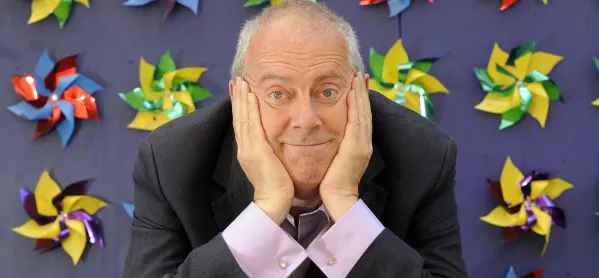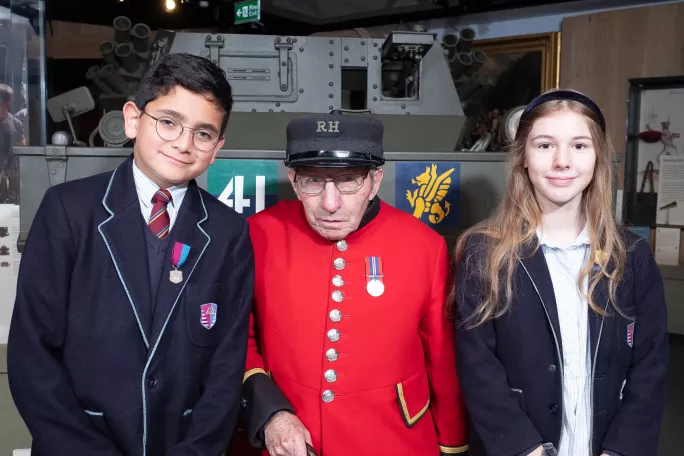The author and broadcaster Gyles Brandreth has launched a national programme for pupils to learn a poem by heart, which they will then perform alongside care home residents.
The Poetry Together project, supported by Dukes Education, encourages pupils to learn a poem alongside residents at their local care home, before meeting in the fortnight around National Poetry Day to perform together.
News: ‘How writing poetry worked wonders for my wellbeing’
Quick read: ‘Poetry can help us navigate our world’
Insight: ‘Poetry is not just for exams’
Mr Brandreth said he knew the satisfaction learning poetry by heart could give pupils and hoped poetry could be a means of bridging the generational divide between pupils and pensioners.
The programme was inspired by seeing his mother enjoy poetry performances by her great-grandchildren.
When the campaign was piloted at the National Army Museum in Chelsea, Mr Brandreth said pupils chose war poems, as they knew they would be meeting Chelsea pensioners, reciting works by Siegfried Sassoon as well as AA Milne’s poem about changing guards at Buckingham Palace.
“It was a complete triumph,” Mr Brandreth said. “Young children doing Sassoon with the older soldiers who had actually been in war zones was powerful to see.”
Pupils asked veterans if they were frightened or feared being killed in the trenches. Mr Brandreth said it was unusual to see children ask older people about the reality of war.
The veteran soldiers began marching spontaneously to the beat of Milne’s poem, while one 98-year-old was wheeled by 10-year-old pupils around the room.
Mr Brandreth said he was conscious of the demands on teachers - his son-in-law is a primary school teacher in inner London - and said he knew the idea needed to be simple in order to be effective.
“The pressure on schools is so great to do so many things, that I was keen to make this as simple as possible,” he said.
The broadcaster and BBC Radio 4 Just a Minute star said the idea was purely meant to be fun, while helping schools engage with their local community.
“This is not about competition - it’s about tea, cake and a poem. The cake is as important as anything else…the poem is an excuse.”
Eighty schools so far have signed up.
Mr Brandreth said poems could act as an ice-breaker between the generations and give all pupils a sense of achievement in having learned a poem.
“I want to demythologise poetry,” he said.
He was keen to remove competitive elements after attending poetry recitals as a child where the judges wore hats.
“It was all rather grand and frightening,” he said.
Mr Brandreth stressed that Poetry Together should be inclusive, encompassing a range of school types.
“It’s absolutely not for people who look like me or sound like me exclusively,” he said.
Veteran soldiers had been particularly enthused by hearing rap from pupils.
“They were doing rap-style dancing in the wheelchairs.”
He said while schools often had existing links with care homes, pupils visiting to perform “good works” could feel patronising for older people.
The scheme was about “breaking down the barriers around what performing poetry’s about” and allowing pupils to enjoy “rolling around words in their heads.”
He said poetry would help pupils express emotions, having learned most teenagers no longer sent love letters, but expressed flirtation through emojis.
“Language is what makes us human…you can do a lot with an emoji, but you can do even more with a poem.”
Pupils who learned poetry by heart were “laying down stuff that will be your companion for the rest of your life,” he said.
Mr Brandreth urged schools to sign up via the Poetry Together website and will provide every participating school with a signed copy of his new anthology of poems, Dancing By The Light Of The Moon, due to be published in the autumn.
“Give it a go - don’t be frightened. The cake is the incentive!” he said.





